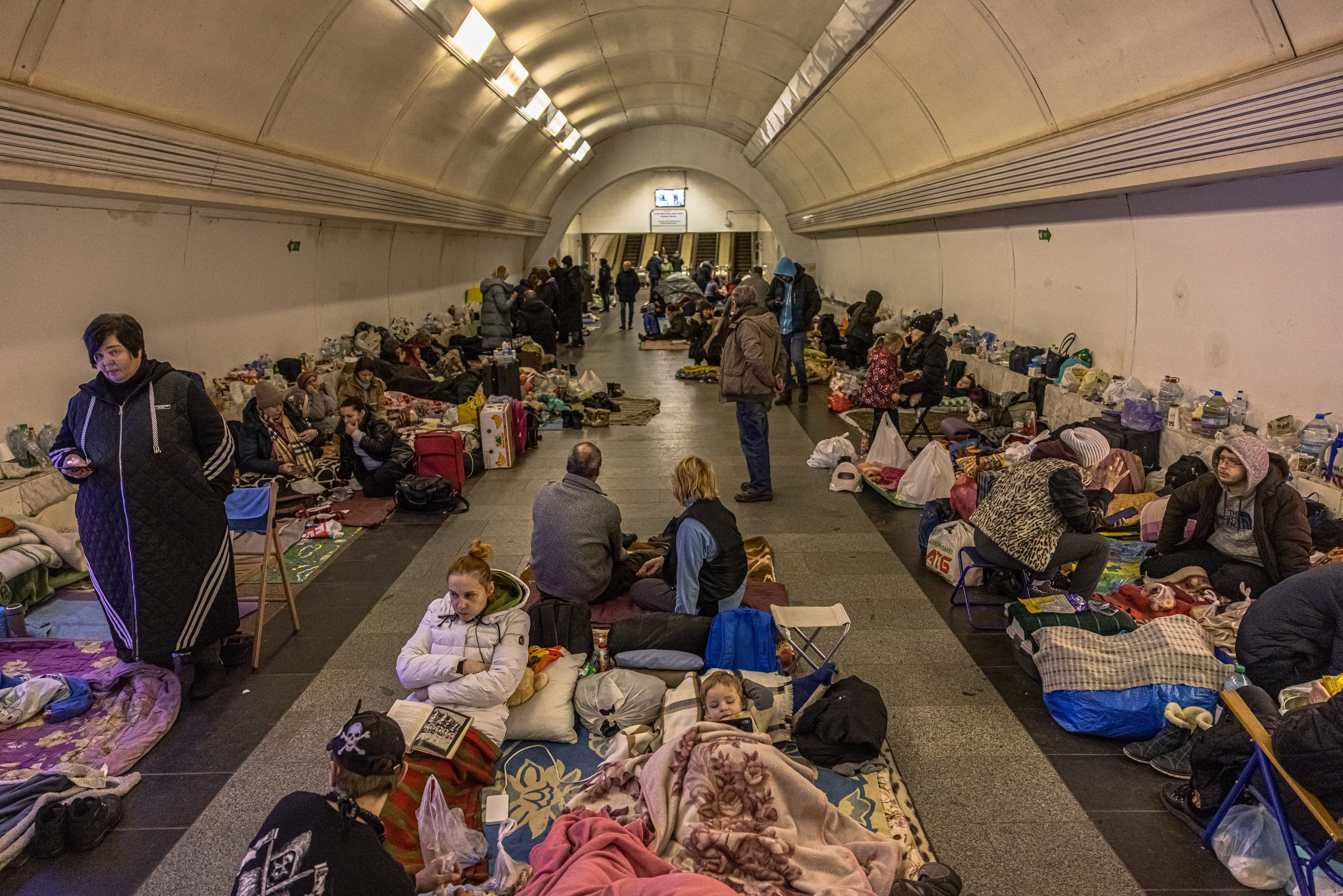Ukrainian women’s ‘lives at risk’ by giving birth in bomb shelters with lack of equipment
‘Babies don’t stop and periods don’t go’ in conflict situations, expert says

Your support helps us to tell the story
From reproductive rights to climate change to Big Tech, The Independent is on the ground when the story is developing. Whether it's investigating the financials of Elon Musk's pro-Trump PAC or producing our latest documentary, 'The A Word', which shines a light on the American women fighting for reproductive rights, we know how important it is to parse out the facts from the messaging.
At such a critical moment in US history, we need reporters on the ground. Your donation allows us to keep sending journalists to speak to both sides of the story.
The Independent is trusted by Americans across the entire political spectrum. And unlike many other quality news outlets, we choose not to lock Americans out of our reporting and analysis with paywalls. We believe quality journalism should be available to everyone, paid for by those who can afford it.
Your support makes all the difference.Ukrainian women’s lives are being placed at risk by giving birth in bomb shelters with a lack of medicine and equipment, health professionals on the frontline have warned.
Campaigners told The Independent there is a lack of water, medication and blood for pregnant women giving birth in Ukraine in the wake of Russia’s invasion as they warned hospitals have been bombed.
Dr Galyna Maistruk, a doctor who specialises in obstetrics and gynaecology who is currently in the west of Ukraine, said the conflict is proving highly dangerous for women’s health.
“Every story is unfortunately dramatic,” Dr Maistruk, a women’s rights activist and executive director for Women’s Health and Family Planning Ukraine, told The Independent.
The 60-year-old, who did not want to give her exact location to protect her safety, said air raid sirens go off five or six times a day - with citizens running to bomb shelters after the alarm sounds.
“They have put the delivery rooms on the ground floor of the hospitals,” Dr Maistruk added. “Some of the women are giving birth in shelters. It is difficult.”
The doctor, whose organisation is part of the International Planned Parenthood Federation, warned there is a lack of blood available which is problematic for pregnant women undergoing caesareans.
“We have a lot of injured people who have lost blood from the bombings and the war and they need blood,” Dr Maistruk said. “Our military servants are struggling for blood.”
The campaigner noted there are not enough blood donors for the amount that people require as she said “it is a very big and bloody war, with a very aggressive enemy, who has no humanitarian or human values.”
Russia is bombing schools, hospitals, and delivery houses where you give birth to children, Dr Maistruk, who is originally from the Ukrainian capital of Kyiv, said.
She added: “I don’t wish anyone to have such experiences. These conditions are not normal. We have a lack of water, we have a lack of medications. Kyiv is partially surrounded by bombing and battles now.
“Every day, bombing is happening. Every minute. There are no safe places in Ukraine at all. Sometimes I don't want to be a rat so I don’t want to go to the shelter - you don’t know who will block you there forever.”
Ukraine’s emergency services have warned hundreds of structures, such as hospitals, transport facilities, people’s houses, and nurseries had been wiped out since Russia’s invasion. The number of civilian deaths was estimated to be more than 2,000 by such services on Wednesday.
Caroline Hickson, regional director for International Planned Parenthood Federation, told The Independent the situation for pregnant women in Ukraine under Russia’s attack is “appalling” as she warned “babies don’t stop and periods don’t go” in conflict situations.
Ms Hickson, who specialises in international development, added: “We are hearing all the time of women who are giving birth in shelters. Women need access to hygiene products, to sanitary towels, women who are breastfeeding need support.”
Activists from the Polish Women’s Strike are providing such items, as well as nappies, and supporting those who are being subjected to gender-based violence.
The situation is “putting pregnant women’s health and life at risk”, Ms Hickson said, adding that if a woman requires a “C-section in this situation, it could be very dangerous and life-threatening.”
But the campaigner, who is based in Brussels, noted there are courageous doctors operating in highly difficult circumstances in Ukraine.
She added: “We know the refugees coming across the border at the beginning were people who had more opportunities to leave Ukraine and places to go.
“But now and in the next days, we are beginning to see far more people coming who will not have places to go. Now you will see people stuck at the borders with no place to go.”
There is a massive humanitarian effort being conducted by civil society groups to care for people trapped on the borders, she said, adding that women and girls and LGBT+ people have particular needs and vulnerabilities.”
While it was announced on Thursday that Russians and Ukrainians had agreed to humanitarian aid corridors, this still has not been implemented despite being of “utmost urgency”, she said.


Join our commenting forum
Join thought-provoking conversations, follow other Independent readers and see their replies
Comments